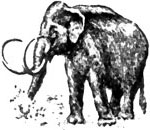|
NOTE: This is a provisional announcement. This workshop was originally proposed to become an integrated part of the conference program of the 2006 convention of the . While the proposal was approved by the AECT program planner for the 2006 convention, it can for practical reasons not be accommodated during the regular conference days. We have thus decided to postpone offering the workshop to a future occasion and will equally seek out alternative professional environments that could benefit from facilitating it. Any requests to run the workshop will be welcomed and will receive serious consideration on our part.
Once upon a time, a colossal,
friendly and useful practice flourished among those interested
in the advancement of knowledge. The practice was of great benefit
to progress in such fields as the sciences of human learning.
It helped develop the eclectic insights into how learning processes
can be improved through communications and technology. The practice
was called DIALOGUE. The word is capitalized because it was so
colossal and also so important. Unfortunately, the practice became
extinct. It is not quite known why. Some scholars think it is
because of the dramatic changes in the habitat in which it once
thrived. Those practicing the advancement of knowledge now often
find themselves overburdened by academic bureaucracy and the
writing of grant proposals. Besides, they are frequently encouraged
to be primarily motivated by requirements for tenure and promotion
rather than by the pursuit of knowledge. Fortunately, some of
the genetic code that structured DIALOGUE got embedded in other
practices, such as the writing and publishing of learned papers
and doing presentations at conferences, but DIALOGUE as it used
to e
The workshop is being organized and will be facilitated by the Learning Development Institute (LDI) as part of its contribution to the work of the AECT and its membership. LDI has been responsible for a series of presidential dialogue sessions at the International Conventions during the past five years, traces of which can be found at http://www.learndev.org. The workshop will be a three-day event held during the AECT's 2006 International Convention in Dallas, TX (October 11-14). On each of the three days, participants will work together for a total of two hours. Each of the two-hour periods will overlap with the lunch break. Participants will pay a small fee, as part of their registration package, to cover the cost of coffee and cookies available during the workshop. Participants may bring their own brownbag lunch. While the lunch is not free, the workshop is, because the work to be done will be shared by all. At this stage the organizers seek responses from prospective participants, members and non-members of the AECT, who wish to take part in the workshop. If you are interested, please respond to the following items (copy and paste them into an email). Your responses will help the organizers to tailor the workshop to the interests of and possible contributions by the participants. Please send your responses to Jan Visser, President of the Learning Development Institute, at [email protected]. For practical reasons the number of participants may have to be restricted, in which case your chances of participating will depend on the swiftness of your response. |
 Once
upon a time, now more than 10 000 years ago, a friendly, useful
and colossal animal - the MAMMOTH - roamed the earth. It doesn't
exist anymore. It became extinct for reasons we do not yet quite
understand. It may have been climate change, hunting, or disease
that caused its extinction. The question is still hotly debated.
Fortunately, we still see the occasional tusk protrude from under
the ice and are sometimes able to unearth one of these colossal
animals, getting access to its tissue, allowing us to unravel
its genetic code. So, one day we may even be able - with a little
reverse-engineering - to resurrect the animal and then reengineer
it to live happily, once again, in the present day world.
Once
upon a time, now more than 10 000 years ago, a friendly, useful
and colossal animal - the MAMMOTH - roamed the earth. It doesn't
exist anymore. It became extinct for reasons we do not yet quite
understand. It may have been climate change, hunting, or disease
that caused its extinction. The question is still hotly debated.
Fortunately, we still see the occasional tusk protrude from under
the ice and are sometimes able to unearth one of these colossal
animals, getting access to its tissue, allowing us to unravel
its genetic code. So, one day we may even be able - with a little
reverse-engineering - to resurrect the animal and then reengineer
it to live happily, once again, in the present day world. xist is dead. However, as we still
see remnants of DIALOGUE occasionally stick out of such other
practices, it may be possible to unearth what once existed, resurrect
it, and reengineer it to survive in today's environment. In this
workshop we will do precisely that. We will apply our creative
and critical faculties to initiating the process of reintroducing
and continually improving the practice of sharing, community
building and creative collaboration among members of our community
of researchers, thinkers and practitioners.
xist is dead. However, as we still
see remnants of DIALOGUE occasionally stick out of such other
practices, it may be possible to unearth what once existed, resurrect
it, and reengineer it to survive in today's environment. In this
workshop we will do precisely that. We will apply our creative
and critical faculties to initiating the process of reintroducing
and continually improving the practice of sharing, community
building and creative collaboration among members of our community
of researchers, thinkers and practitioners.